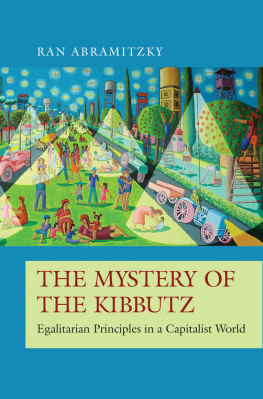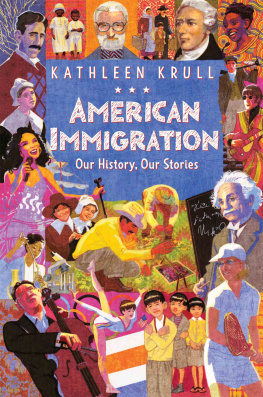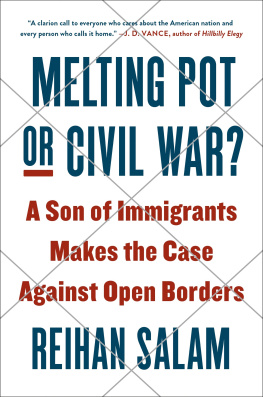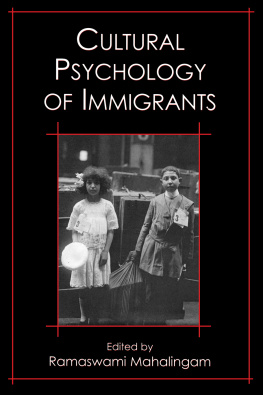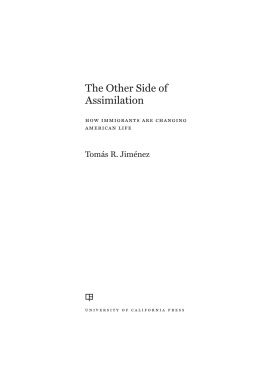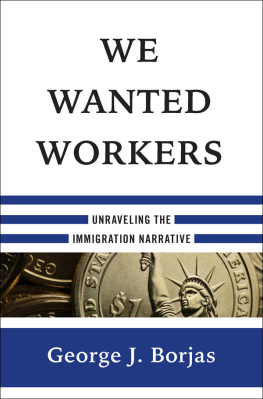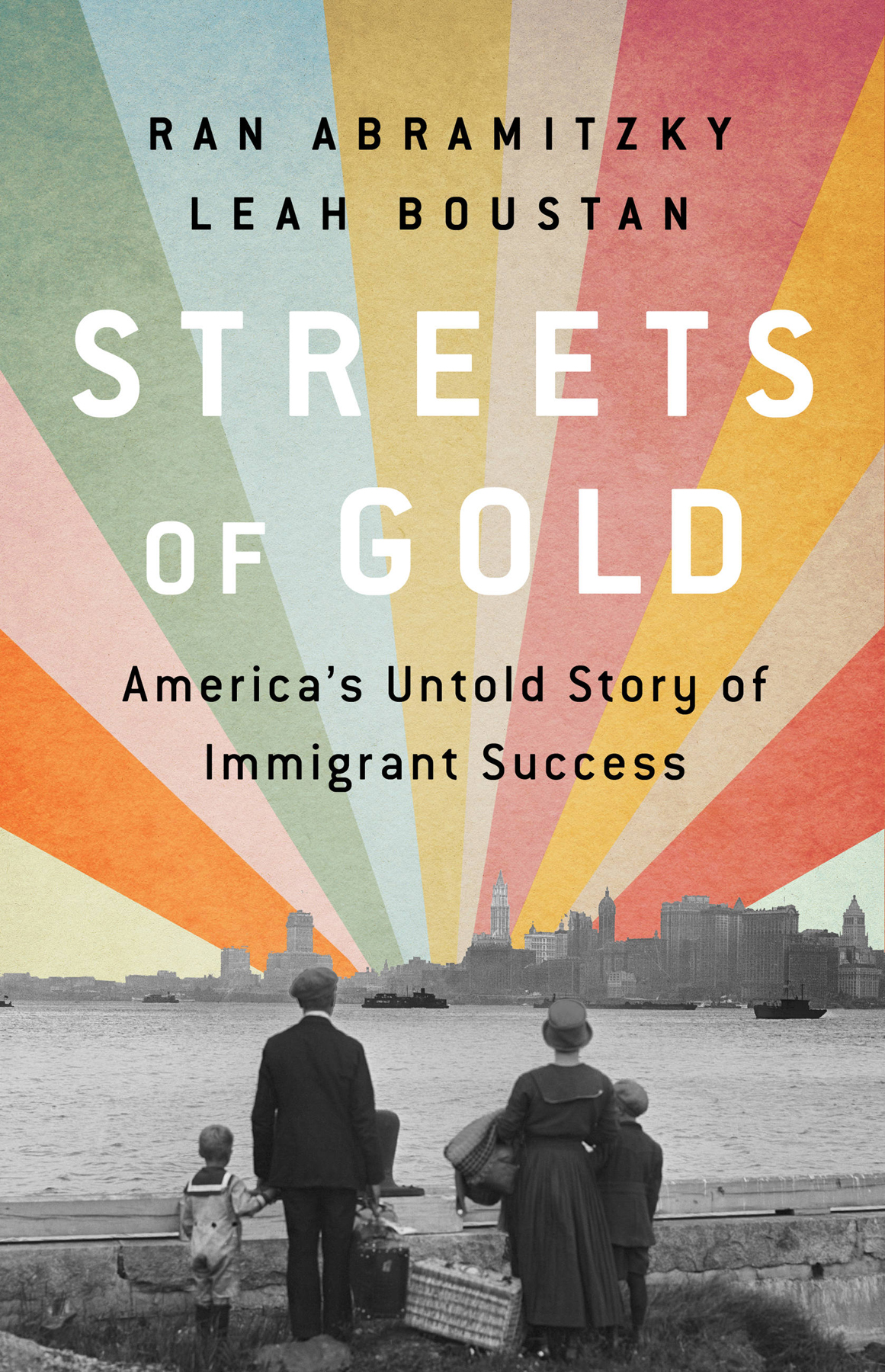Praise for
Streets of Gold
This wonderful and highly readable book provides the facts and sets the record straight about the hot-button issue of immigration and is a must-read for anyone who cares about this important issue. Immigrants benefit from coming to the US, but so does the country from the diversity, skills, and energy that they bring. Remarkably, most existing evidence suggests that native workers are not harmed by immigrants.
Daron Acemoglu , Institute Professor of Economics, MIT, and coauthor of Why Nations Fail and The Narrow Corridor
In this fascinating book, Abramitzky and Boustan ingeniously employ the tools of data science to construct the first big data account of immigration in America. Combining rigorous statistical analysis with thoughtful narratives, they weave a compelling story about how millions of immigrant families achieved the American Dream over the last century and a half. The result is a set of timely and concrete insights that will help reshape the narrative about immigration and opportunity in the United States.
Raj Chetty, William A. Ackman Professor of Public Economics, Harvard University
While Americans are intensely polarized about immigration, facts and history can help change minds. And Streets of Gold has the facts, millions and millions of them, about the amazing and often-surprising history of American immigration. It is a splendid testament to the power of big data to illuminate our past and what it means for the future.
Angus Deaton , Nobel laureate, economics, and coauthor of Deaths of Despair and the Future of Capitalism
Complex in its coverage, uplifting in its message, engaging in its composition, and powerful in its significance, Streets of Gold is a New World Symphony in words and numbers. Immigrants today, as in the past, make a better life for themselves. But upward mobility comes through generations, and the success of the immigrant child does not come at the expense of the one with US-born parents. There is greater continuity and harmony in this version of the American Dream than discontinuity and dissonance.
Claudia Goldin, Henry Lee Professor of Economics, Harvard University, and author of Career & Family: Womens Century-Long Journey toward Equity
With Streets of Gold , Ran Abramitzky and Leah Boustan have written a highly engaging book on the enduring but underappreciated success story of American immigration. Interweaving anecdotes drawn from many sources, including their own personal stories, with conclusions drawn from systematic big data analyses using tools from modern economic research, they paint a vivid and wide-ranging picture of the changes in immigration over time and the effects on American society. They take us to meet not only spectacular success stories like Tino Cuellar, who quickly moved from being born in Mexico to graduating from Harvard and becoming a justice on the California supreme court, but also the more common story of Louis Bilchick, whose family moved slowly but steadily up the economic ladder. Along the way, they separate fact and fiction and bust many of the myths that pervade and confuse the current discussion on immigration policy. As an immigrant and American citizen, I highly recommend this inspiring book for anyone interested in the debates on immigration.
Guido Imbens, The Applied Econometrics Professor, Stanford University, and Nobel laureate, economics
Unprecedented data, empathetic personal histories, joyous writing, practical solutions, and a compelling counter-zeitgeist narrative make Streets of Gold an essential read for all Americans confused by the partisan rancor surrounding immigration. Abramitzky and Boustan demonstrate the travails of first-generation immigrants, the startling economic success of the second generation, the rapid pace of cultural Americanization, the lack of wage threat to American-born workers, and the similarity of these patterns for the two waves of immigration bringing Europeans (in the late nineteenth century) and Latin Americans (in the late twentieth century) into our country. Despite all the rancor, we who are of immigrant heritage are reminded how remarkable a country is America.
David Laitin, Watkins Professor of Political Science, Stanford University
The optimism that runs through Streets of Gold immigrants are and have always been a grand bargain for Americais based on the rock-solid evidence of Ran Abramitzky and Leah Boustans rigorous deep dive into millions of census records and Ancestry.com filings. The stories they tell then become a powerful means of communicating the truth about the unique phenomenon of the American immigrant experience.
Doug Massey, Henry G. Bryant Professor of Sociology and Public Affairs, Princeton University
A book as timely as it is magisterial. Two of the most respected and accomplished scholars of economic history demonstrate that much of what you thought you knew about the historical experience of immigrants coming to the United States in the past turns out to be wrong. Armed with reams of new data, elegantly written, and meticulously researched, Streets of Gold revisits many of the most pertinent and perplexing social and economic issues in the history of immigration with often-surprising results.
Joel Mokyr, Northwestern University
Streets of Gold is the conversation you always wanted to have about where Americans come from. Abramitzky and Boustan have discovered new ways of answering that question in this fascinating and hard-to-put-down history of American immigration, based on new sources of data, and conveyed by powerful storytelling.
Alvin E, Roth, Nobel laureate, economics, and author of Who Gets What and Why
Streets of Gold is a pathbreaking book. Mining a treasure trove of big data over more than a century, Ran Abramitzky and Leah Boustan manage to show the surprising continuity between past and present patterns of immigrant integration in the United States. Their data show that most immigrants, even across widely different backgrounds, achieve success over two to three generations, much as in the past. This book is a must-read for those interested in the role of immigration in American society.
Andrew Selee, president, Migration Policy Institute
An absolute treasure, the perfect book on immigrationsubstantive and data-driven, but leaving room for the stories of immigrants, good and bad. This is a timely book, but it will be read for many years.
Zack Weinersmith, New York Times bestselling author of Soonish
Copyright 2022 by Ran Abramitzky and Leah Boustan
Cover design by Pete Garceau
Cover image Bettmann Archive / Getty Images
Cover copyright 2022 Hachette Book Group, Inc.
Hachette Book Group supports the right to free expression and the value of copyright. The purpose of copyright is to encourage writers and artists to produce the creative works that enrich our culture.
The scanning, uploading, and distribution of this book without permission is a theft of the authors intellectual property. If you would like permission to use material from the book (other than for review purposes), please contact permissions@hbgusa.com. Thank you for your support of the authors rights.
PublicAffairs
Hachette Book Group
1290 Avenue of the Americas, New York, NY 10104
www.publicaffairsbooks.com
@Public_Affairs
First Edition: May 2022
Published by PublicAffairs, an imprint of Perseus Books, LLC, a subsidiary of Hachette Book Group, Inc. The PublicAffairs name and logo is a trademark of the Hachette Book Group.


